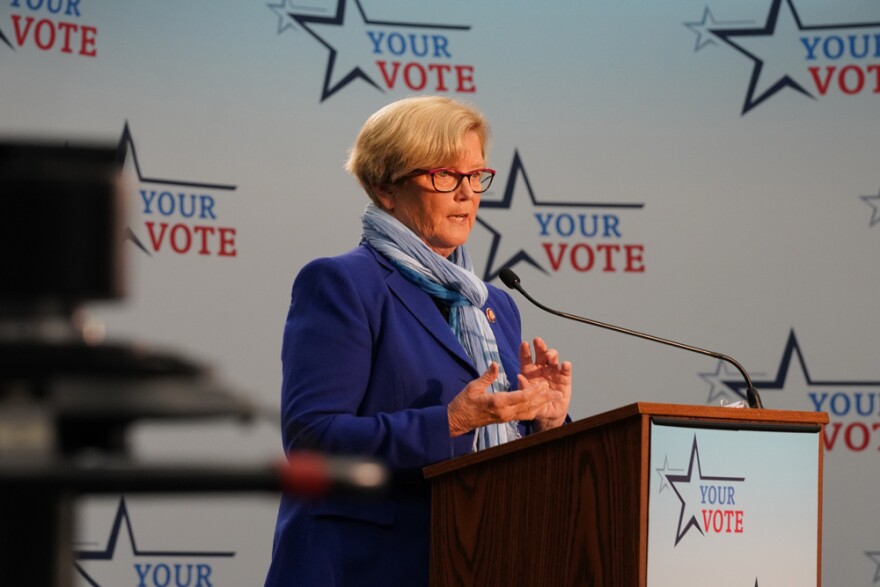In her first full day as chair of the interior subcommittee of the Appropriations Committee, U.S. Rep. Chellie Pingree held a closed-door briefing with more than a dozen law enforcement and military officials on what went wrong with security during the Capitol riot on Jan. 6.
Maine Public Radio’s Mal Leary spoke with Pingree following the meeting.
This interview has been edited for clarity.
Pingree: The basic questions are: Did we not have sufficient intelligence? Or did somebody not act on it? And one of the complexities of D.C. is that because it’s not a sovereign state, they can’t just call up the National Guard, as you would with a governor in another state. They have to go through all kinds of layers to get the Guard, plus you have the Capitol Security Police, who guard the Capitol, you have the Secret Service that the guard the Vice President, you have the Park Police that guard the area where the rally was held. And then you have, you know, the D.C. National Guard, other states’ National Guard. But ultimately, all these decisions get made by the U.S. Army.
So it’s not surprising that there was so much of a lack of communication and shared information. But there are big questions that still loom about why the Army didn’t have better intelligence. And why did they refuse to send the National Guard when first asked? So I would say it’s a mixture of the politics behind all of this, and why was their foot dragging? Why is there such a huge contrast between what happened that day when rioters and domestic terrorists stormed the Capitol and what happened at Black Lives Matter protests, and a variety of other protests that we’ve all witnessed in the Capitol when people are immediately arrested or taken away? So I guess I didn’t find answers to every question, but we certainly started going through the layers to figure out what happened.
Leary: If you asked any of your constituents, you know, when you’re talking to them on the street, and you listed all of those agencies that you just listed. I think a lot of folks would say, with all of those agencies, why wasn’t there enough law enforcement, National Guard, police available to protect the Capitol?
Clearly, there are so many ways to protect the Capitol, and so many agencies potentially involved as well as the D.C. police force. But that’s why there’s so much suspicion about why wasn’t the intelligence shared in a better way? Why, early on, was there no request to be better prepared when people had a sense of what was going on? Even the park police knew that the permit changed from 5,000 to 30,000 people well prior to the event, and they knew that the president was going to attend, which certainly changes what the likely outcome is. So it’s a huge failure of security. But I think it raises many more questions as well.
Do you think you got straight answers from this group of law enforcement officials?
I think some of their answers were very honest and straightforward. And certainly, we know that many of the people involved in security that day put their lives on the line, there was a loss of life, multiple law enforcement officers, numbering in the 60s, were injured. It was a rough day for a lot of people in law enforcement. But there are other answers where they gave the same kind of political speak that politicians use when they don’t want to give a straightforward answer, and certainly led us to have greater concerns. And again, this was not a partisan hearing, people on both sides of the aisle wanted to know why the security was breached. Why members of Congress and staff people in that building had their lives put in danger as well as the vice president.
So what’s next? Since this was a closed hearing, for reasons to protect some of the classified information, shouldn’t the public be able to hear some of these answers as to what went wrong?
I think absolutely a public hearing, and we may break it down into the individual committees because there are so many law enforcement agencies and they’re governed by a whole variety of different congressional committees. I think we’ll break it down and go for more in depth questions. And absolutely, the public has a right to know. I think the public has a lot of questions as well.



